On this site we use kakor to make the site work best.
Some cookies taste better than others
Cookies are small notes that are recorded by your internet browser in order to remember details about your visit. They ensure that this message will not pop up several times, they enable you to engage in chats, and make sure your language preferences are saved.
Some cookies are placed by services from our digital partners, which we use for the purpose of surveys, visitor statistics, videos and more-relevant advertising. You can choose to not accept these. If you change your mind later, you can change your settings via a link at the bottom of every page. Because our partners may have you as a user, or may store data about you, they may use cookies to track you between different websites. They can also save personal data, such as your IP address. By accepting cookies from our partners, this may mean that data is transferred to countries outside the EU.
Happy browsing
Göteborg & Co
Read our cookie policy
How we process your personal data
About cookies and other titbits at goteborg2023.com
At goteborg.com, we save cookies on your internet browser. Your cookie ID and IP address can constitute personal data. We care about your personal privacy, and our use of cookies is in accordance with the Act on Electronic Communication, which ensures that you have the right to know about which kind of cookies we use, the purpose of our use of cookies, and how you can reject them.
In addition to cookies, we also use other similar tracking technology, such as pixels. In this policy, we use the word cookie to refer to both cookies and other tracking technology.
On this page, we will look at:
- The different categories of cookies that we use on our website.
- How you can control which cookies may be saved.
- The purposes for which our cookies are used.
Responsibility
It is Göteborg & Co AB that is responsible for the placing of cookies on this website. We are also the data controller for the processing of your personal data that is collected via cookies when you visit goteborg2023.com.
For more information about our processing of personal data using cookies, you can read our privacy document, Personal Data. You can always access this document from the footer on our website.
Contact us
Do you have any further questions about how we use cookies and tracking?
If so, please email us at: 2023@goteborg.com.
Or write to us via:
Göteborg & Co
Box 29
401 20 Göteborg
What are cookies?
Cookies are small text files that are saved in the internet browser on your computer, smartphone or any other device when you visit our website. Cookies allow the website to recognise your browser, which enables, for example, your personal settings and preferences to be saved, and they follow you as you click your way from page to page.
Which cookies are used at goteborg2023.com?
At goteborg2023.com, we use several different types of cookies:
- A session cookie is saved temporarily in your computer’s memory for the duration of your visit to our website. It disappears when you close your browser.
- A permanent cookie remains on your computer until it is deleted. This means, for example, that our website can recognise your computer’s IP address, and can remember your cookie preferences and your chosen language settings.
- The cookies that are placed directly by our website are known as first-party cookies. Some of these are necessary in order for all technical functions of the website to work. Our functional cookies do not require your previous consent, and they are always active.
- We also use third-party cookies. These are placed by our digital partners by means of various services that we use on our website. For those cookies, you can personally choose which purposes you wish to accept. In addition to functional cookies, we at goteborg.com also use cookies for the purpose of statistics & analysis and marketing.
We need your consent
Because statistics and marketing cookies are not essential for our website’s basic functions, we ask for your consent for our use of these cookies. The first time you visit our website, you will be given the opportunity to select which cookies we may use. If you choose to allow all types of cookies, this means that you consent to our processing of cookies as described in this policy.
Sharing personal data with a third party
When you accept statistics and marketing cookies, information about your usage of our website is shared with our social media and analysis partners. These partners can then combine our website data with other information that either you have provided them with or they have collected from your usage of their own services. By accepting statistics and marketing cookies from a third party, certain data may be transferred to countries outside the EU. This means that your consent for these cookies also confirms your consent for our partners to process your data, and that your data may be transferred to countries outside the EU.
Adjustment or withdrawal of consent
By adjusting your settings, you can select the purposes for which we may use cookies. You may at any time withdraw your consent for the processing of cookies. We will stop storing new cookies from the point at which you withdraw your consent. If you wish to delete cookies that have already been stored, you can do so via your browser. You will find instructions about how you can manage cookies in the most common browsers at the bottom of this page. In your browser, you can also choose to allow or block all cookies, and you can specify your cookie settings for individual websites in advance.
Here follows a list of those cookies that are placed via goteborg2023.com:
Statistics and analysis cookies
We use statistics and analysis cookies in order to help us improve our website, to optimise the user experience for returning visitors, and to allow us to analyse where our visitors come from and to measure how our website is used. For our use of statistics and analysis cookies, the legal basis is your previously expressed consent.
Google Analytics
Google Analytics provides goteborg2023.com with the opportunity to measure and analyse traffic at the website. We collect this information in order to be able to improve the structure, content and navigation of the website. Examples of how we use the information in Google Analytics include: the number of visitors during a defined period, which pages the visitors look at, and how long visitors spend on the website.
_ga
By: Goteborg2023.com
Duration: 6 months
_gat
By: Goteborg2023.com
Duration: 1 day
_gid
By: Goteborg2023.com
Duration: 1 day
collect
By: google-analytics.com
Duration: Session
Marketing cookies
The cookies we use for marketing purposes allow us to communicate with you in other channels and to show you advertising that is as relevant as possible, based on what you have shown an interest in on our website. If you choose to not allow these cookies, you will still see adverts from us, but they will not be personally adapted to your usage. For our use of marketing cookies, the legal basis is your previously expressed consent.
Youtube
We use YouTube as a service for streaming videos to visitors to goteborg2023.com. This cookie also saves information that can later be used for marketing purposes. You can visit YouTube’s website for more information about how they process cookies, the information they collect, and how you can delete any third-party cookies.
VISITOR_INFO1_LIVE
By: youtube.com
Duration: 6 months
YSC
By: youtube.com
Duration: Session
Adform
Adform is used in order to facilitate retargeting. Retargeting allows goteborg2023.com to follow its visitors, which enables us to target adverts to you on other websits and networks. Adform is also used in order to measure the effectiveness of adverts, and to see what visitors do on the website in relation to the advertising that is conducted.
C
By: adform.net
Duration: 1 month
uid
By: adform.net
Duration: 2 months
Facebook Pixel and Facebook cookies are used in order to facilitate retargeting. Similarly to Google Adwords, Facebook cookies enable the connection of visitors with any Facebook account they may have. This connection is then used to target adverts to you via Facebook’s advertising platform. Facebook cookies are also used in order to measure the effectiveness of adverts, and to see what visitors do on the website in relation to the advertising that is conducted.
_fbp
By: Goteborg2023.com
Duration: 3 months
fr
By: facebook.com
Duration: 3 months
tr
By: facebook.com
Duration: Session
Twitter pixel and cookie are used in order to facilitate retargeting. Similarly to Google Adwords, Twitter cookies enable the connection of visitors with any Twitter account they may have. The connection is then used to target adverts to you.
i/jot
By: twitter.com
Duration: Session
Functional cookies
The purpose of the functional cookies that we use is that they are technically necessary for the provision of our website and its functions. In accordance with the Act on Electronic Communication, these cookies are always active and do not require your previous consent.
pll_language
By: Goteborg2023.com
Duration: 6 months
Favourites
In order for goteborg2023.com to remember that you have selected program favourites in the calander, a cookie is placed on your browser.
gbg2021events
By: Goteborg2023.com
Duration: 6 months
Cookie settings
The purpose of these cookies is to enable us and our digital partners to be aware of, and to take into account, your chosen preferences regarding cookies.
CONSENT
By: goteborg2023.com
Duration: 6 months
Limiting cookies
Here you will find information about how you can manage cookies in various common browsers:
Manage cookies in Chrome
Manage cookies in Safari
Manage cookies in Safari on iPhone and iPad
Manage cookies in Microsoft Edge
Manage cookies in Firefox
Find out more about how Facebook uses your data here. You can also change your personal settings and select which data you allow Facebook to use in order to show you adverts.
Find out more about how Google uses your data here. You can turn personalised advertising on/off, and control which information Google uses in order to target interest-based advertising to you.
More information and the right to complain
If you would like to find out more about cookies, further information is available on the website of the Swedish Post and Telecom Authority. The Swedish Post and Telecom Authority is the supervisory body for electronic communication in Sweden. You have the right to contact them if you wish to complain about our use of cookies.
Which cookies do you want to accept?
We use cookies in order to provide a better user experience, to measure results, and to show you relevant advertising. By accepting statistics and marketing cookies from a third party, information about your usage is shared with our partners, sometimes in countries outside the EU.
Cookies at goteborg2023.com
Functional
Necessary
Notifications, cookie settings
Statistics & analysis
Google Analytics
Marketing
Youtube, Google, Twitter, Doubleclick, Adform and Facebook
Personal data management
The Personal Data Act is intended to prevent the violation of your personal integrity when personal data is processed. Your personal data may only be processed if you have given consent or if this is permitted under the Personal Data Act or other legislation.
What is personal data?
Personal data is information that can be linked in one way or another to you personally. This can be data such as your name or personal ID number, but also information such as your telephone number. Photos can also be a form of personal data, if you can clearly be recognised in them.
You give consent by clicking “Send”
When you contact us at Göteborg & Co using the form on our website, by email or an e-service and press “Send”, you automatically consent to letting us store your data. Please remember that you have the right to ask us to delete, update or correct your data.
Processing of personal data
“Processing” is a broad term. According to the legislation, collection, registration, dissemination and processing are some of the ways that personal data can be processed. Göteborg & Co processes your personal data in accordance with the law. In the event that we ask for your consent, you have the right to withdraw this consent. The processing of personal data that is needed in order to fulfil an agreement with you or to fulfil a legal obligation is permitted without consent. We only save your personal data for as long as is necessary for the intended purpose of processing. In certain cases we must comply with the Archives Act or other legislation, which means that we cannot delete data. This may mean that a piece of data that has been removed from one system because it is no longer needed may be kept in another system where the personal data is still required.
Personal data controller
Göteborg & Co is the personal data controller for the processing of personal data on this website, in emails and for processing data within the company. The owner is the City of Gothenburg.
We can be contacted regarding our processing of personal data at 2023@goteborg.com.
We also have a personal data representative, whose name is Martin Brunhage. He can be contacted at: dso@intraservice.goteborg.se
When is my personal data processed?
Your personal data may be registered by Göteborg & Co when, for example, you send us an email or contact us via Twitter or Facebook. We may then need to save and store your information in our archive. This is one example of an occasion when we process your personal data. We may also do so when you subscribe to some information from us.
Your rights
In most cases you have the right to be informed when we start processing your personal information and why we are doing so. You also have the right, free of charge, to request information on whether your personal data is being processed by us and, if so, which data this involves. You must personally write to us to request this information. You have the right to receive this information within one month. We also need to verify that you are the person you claim to be. Our contact details are given above.
You have the right to request that your data is deleted, updated or corrected.
This means that even if you withdraw your consent and the data based on that consent is no longer processed, your personal data may still be kept by us for other purposes, such as to comply with other laws that we are obliged to follow. Anyone who believes that a company is breaking the Personal Data Act or other personal integrity legislation can inform the Swedish Data Protection Authority. Read more at the Swedish Data Protection Authority website.
100 years in Gothenburg
Gothenburg celebrated its 300th anniversary in 1923, and the anniversary events have made the city more attractive, wiser, more enjoyable and more dynamic ever since. As Gothenburg celebrates its 400th anniversary, the city will continue to build for future generations – and you’re invited to join the celebrations!
- 1923-2023
- Liseberg
- Gothenburg Botanical Garden
- Gothenburg Natural History Museum
- Gothenburg Museum of Art
- The main boulevard Avenyn
- The Slottskogsvallen Stadium
- The Maritime Museum and Aquarium
- Göteborgs Konsthall
- School of Business, Economics and Law in Gothenburg
In 2023, we will not only celebrate the city’s delayed 400th anniversary, but also several of Gothenburg’s most popular places as they turn 100 years old.
It’s no coincidence that so many attractions and institutions will turn 100 in 2023: they came about in various ways as a result of the great anniversary exhibition of 1923, when Gothenburg celebrated its 300th birthday.
Liseberg amusement park, Gothenburg Botanical Garden, Gothenburg Museum of Art, the Maritime Museum and Aquarium, the Slottsskogsvallen stadium, Göteborgs Konsthall and Göteborg Natural History Museum were all built for the great exhibition. The current layout of the main boulevard Avenyn was established that same year, the School of Business, Economics and Law received its first students, and Bräcke Diakoni began its operations.
They all plan to celebrate their 100th anniversaries in different ways in 2023! You can find out more on this page.
The 1923 anniversary exhibition
A major exhibition was planned to commemorate Gothenburg’s 300th anniversary in 1921. However, it was not ready in time and was delayed until 1923. This was the largest exhibition ever to have been held in the Nordic countries, and occupied large parts of the city.
The anniversary exhibition was opened on May 8 at 13.00 by King Gustav V and was due to close on September 30, but was extended until October 30.
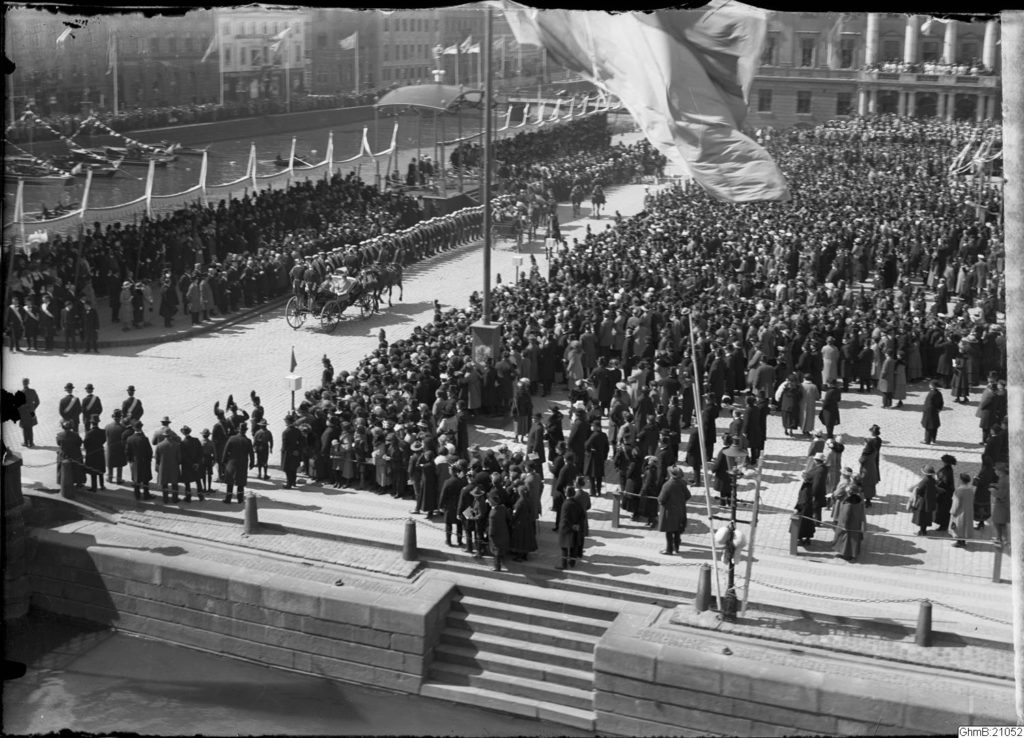

The opening ceremony for the anniversary exhibition in 1923, which took place on May 8 on the square Gustaf Adolfs torg. Photo: Anders Wilhelm Karnell, 1871–1934, the Museum of Gothenburg
The exhibition attracted 4.2 million visitors and was spread across much of the city centre. A number of buildings and new institutions were created in connection with the exhibition.
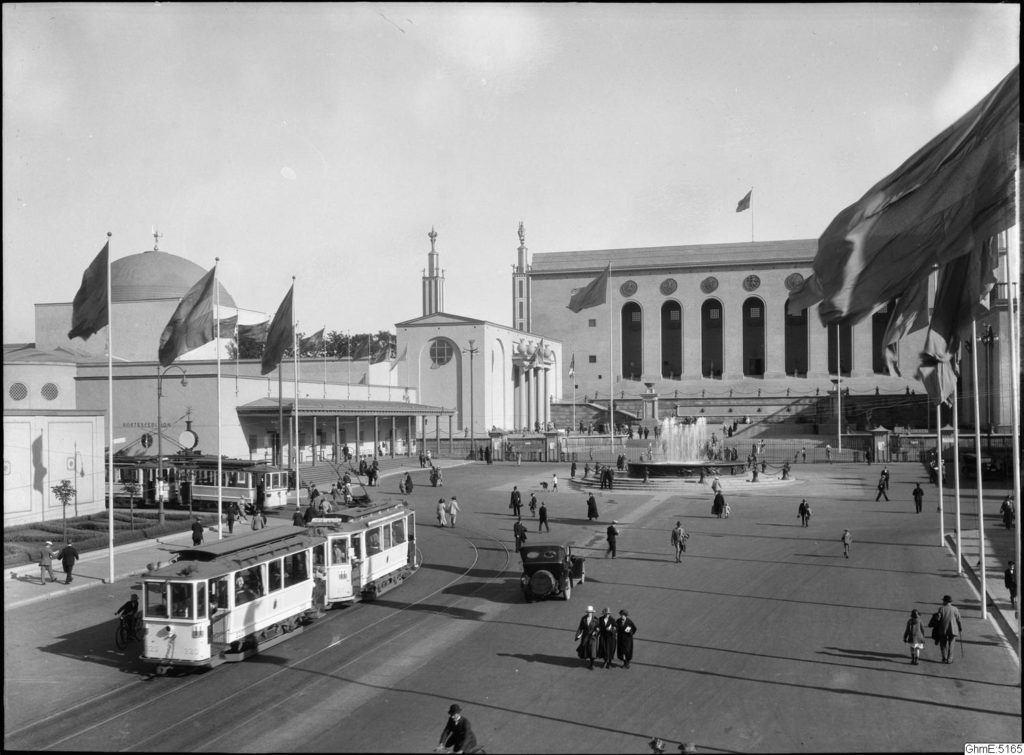

Götaplatsen was built at the top of Kungsportsavenyn as an impressive backdrop to the main boulevard. Gothenburg Museum of Art and the Göteborgs Konsthall centre for contemporary art were built here, with both housing a contemporary Nordic art exhibition during the anniversary period.
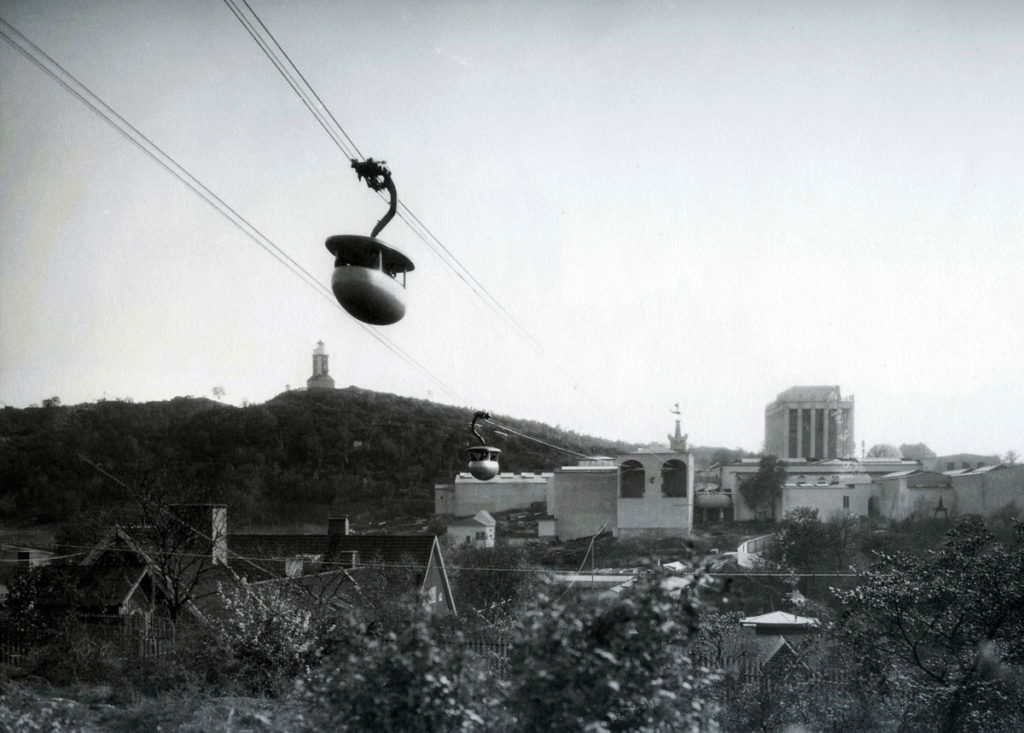

The entrance to the anniversary area behind the art museum was also located on Götaplatsen. Temporary buildings were erected, housing a historical memorial exhibition including culture, crafts and sports. There was also a children’s area here, and from the top of the hill visitors could take a cableway to the newly built Liseberg amusement park.
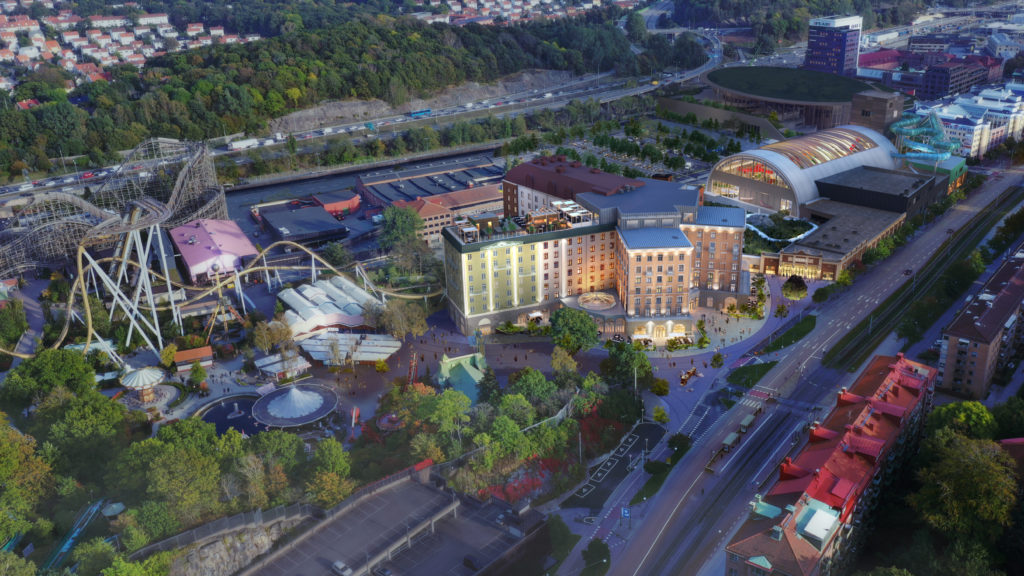

Liseberg’s anniversary projects
Just south of the park, Liseberg’s expansion plans – the Anniversary Project – are currently taking shape. This includes the Liseberg Grand Curiosa Hotel, a 457-room family hotel that is integrated with the park, and Liseberg Oceana, a 14,000 m² aquatic experience unlike anything else in Scandinavia. The hotel will open in spring 2023, just in time for the amusement park’s 100th anniversary, with Liseberg Oceana due to open in spring 2024.
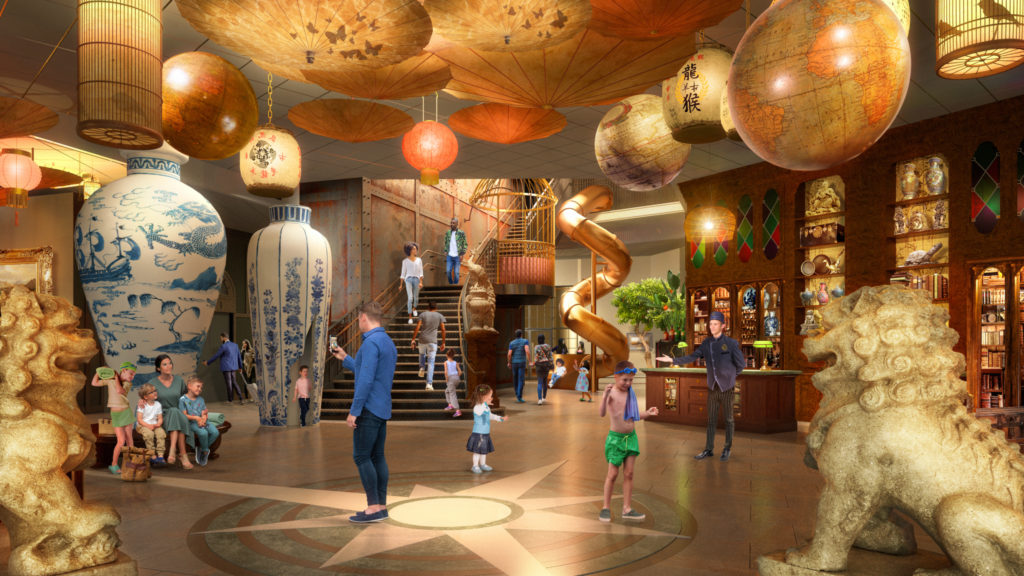

Liseberg Grand Curiosa Hotel
Liseberg Grand Curiosa will be Sweden’s most imaginative family hotel. This will be a hotel unlike anything visitors have experienced before, centred around children’s desire for discovery. With a slide from the second floor straight down into the lobby and a fully functioning pony carousel from 1923 in the restaurant, the Liseberg feeling will accompany guests from check-in to bed time.
The hotel in brief
- 29,900 m² total area (gross area)
- A total of 457 family rooms of at least 29 m², all with at least five beds
- 12 rooms will be specially designed for extra accessibility
- Restaurants and bars on the lobby level, seating a total of 830 indoors and 220 outdoors
- Penthouse with a bistro and bar, seating a total of 220 indoors and 150 outdoors
- Small meeting facility and gym
- Fully functioning pony carousel dating from 1923
- Slide from the second floor straight down into the lobby
- Games room for family and friends
- Cinema for film screenings
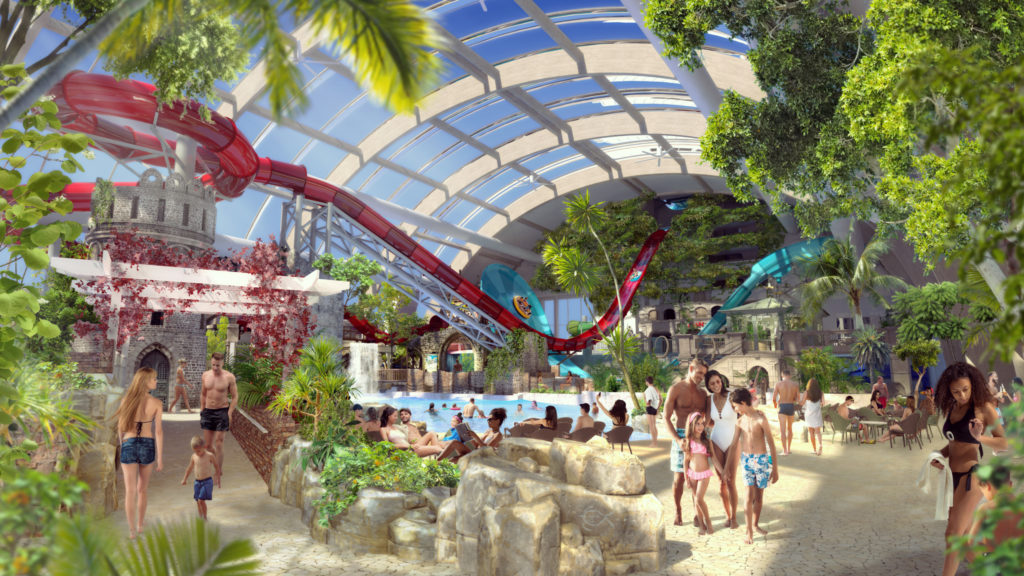

Liseberg Oceana
Oceana will be a magnificent water experience unlike anything else in Scandinavia. With almost 6,000 m² of indoor swimming space and 4,000 m² outdoors, guests will be able to enjoy everything from quiet indoor sandy beaches to adventurous thrills at northern Europe’s most exciting water attraction.
The water park in brief
- Approximately 14,000 m² in total, of which the main pool area makes up 5,600 m²
- 1,750 guests can visit the water park at the same time in the summer, when the outdoor section will also be open. At other times of the year, the capacity will be 1,250 guests
- 14 water attractions, including four large attractions
- Family river and wave pool
- Water play for all ages
- Restaurant
- Adjacent café and shop
Find out more about Liseberg Grand Curiosa and Oceana.
Gothenburg Botanical Garden
With 16,000 plant species spread across 175 hectares, Gothenburg Botanical Garden is one of the largest – and finest – botanical gardens in Europe. The garden was laid out between 1915 and 1923 by the City of Gothenburg, and was intended from the outset to serve not only as a botanical garden but also as a recreational area for the city’s inhabitants. The emphasis on horticultural values was unique at the time. The scientific collections are displayed in beautiful garden spaces, with equal importance being attached to knowledge and beauty. The garden was opened on July 8, 1923, and its first director was the renowned explorer and botanist Carl Skottsberg. The garden’s plant collections mostly came from countless expeditions around the world. These world-class collections include alliums and tuberous plants that were gathered from the wild, and that create a dazzling display in the allium garden and the rock garden. Plants include species from the colchicum, fritillaria, tulip, iris, trillium, erythronium, crocus, corydalis and dicentra genera. While most botanical gardens in European cities have been laid out on flat surfaces, Gothenburg Botanical Garden was built in a naturally undulating environment in a nature reserve, which makes it naturally varied. The nature reserve is located in the heart of the city and wild nature meets cultivated gardens here, with the boundaries are often being fluid. This is particularly clear in the rock garden, with its 4,000 species from every corner of the world. Here, you can also see Scandinavian plants in an area that aims to preserve Swedish plants that are endangered due to changing conditions.
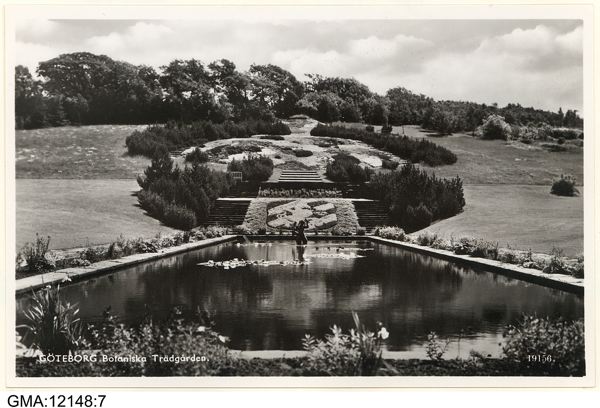

Below the rock garden is the rhododendron valley which features around 100 different species, most of them collected in the wild from East Asia.
The greenhouses are home to Sweden’s largest collection of tropical orchids. Visitors can also see the toromiro tree, which is extinct in its natural environment of Easter Island but has been preserved and spread thanks to Gothenburg Botanical Garden. There is also a unique collection of dionysia, which are challenging to grow and mainly come from Afghanistan and Iran.
The current greenhouses were built in 1983, and are currently closed while waiting for new, larger greenhouses and a visitor centre to be built on the same site. In the meantime, some of the garden’s plants have been moved – including to the brand new ‘cultural gardens’. The new greenhouses are expected to be completed in 2026.
The garden runs extensive public and educational activities, and works closely with the University of Gothenburg. With around 650,000 visitors each year, Gothenburg Botanical Garden is one of Västra Götaland’s top visitor attractions.
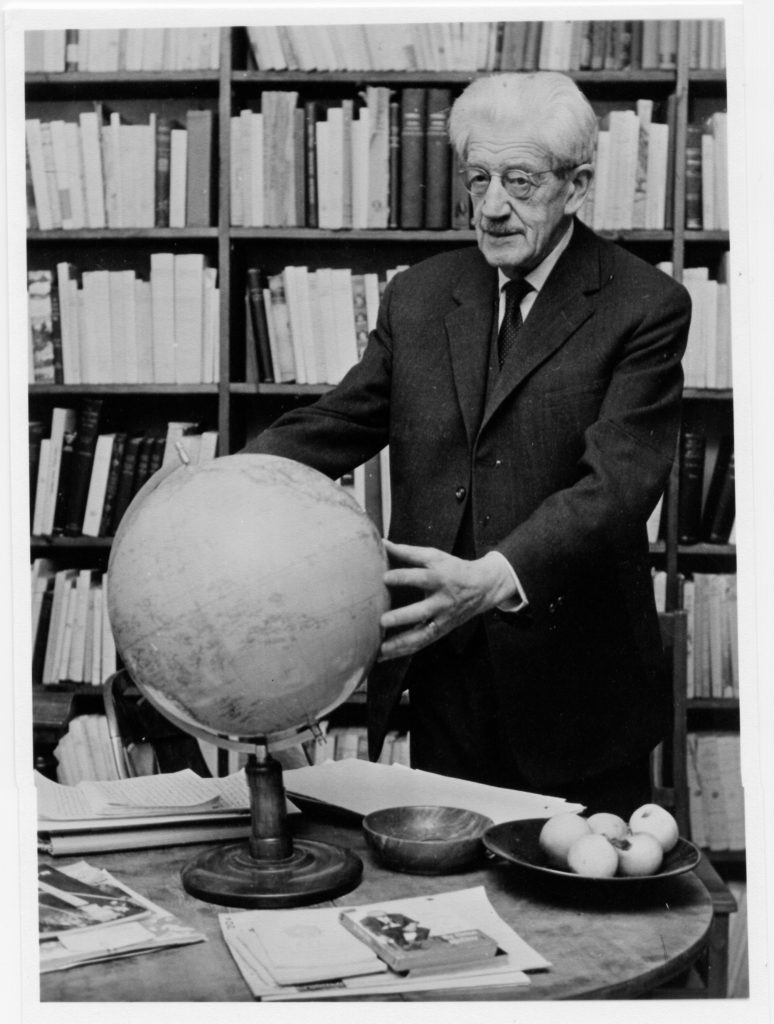

A Friends of Gothenburg Botanical Garden association was formed in 1987, when it was feared that the garden would be unable to survive due to funding cuts. 120,000 people signed a petition to save the garden, which has since flourished to become an extremely popular attraction. The association now has around 7,000 members, and makes a significant financial contribution to the development of the garden.
Gothenburg Botanical Garden was owned by the City of Gothenburg until 1998, when it was handed over to the newly formed Region Västra Götaland.
New cultural gardens
Gothenburg Botanical Garden’s 100th birthday will be celebrated in 2023 with the inauguration of a brand new facility in the garden. This will be built next to Stora Änggården, as many plants – such as dahlias and plants from Landeriet and Stallbacken – will need to be moved here to make space for the new greenhouses and visitor centre. The Stallet building will also be relocated here.
The facility will include a kitchen garden and an educational garden, as well as a small greenhouse. It is hoped that the small mountain greenhouse and the allium garden will be completed in time for the 100th anniversary, when construction can begin on the new large greenhouses and visitor centre.
Konstepidemin takes over the botanical garden
There have been ideas about a collaboration between Gothenburg Botanical Garden and Konstepidemin for many years. The aim is to both collaborate and challenge each other, with guest performances in each other’s areas – both geographically and in terms of content.
The basic idea behind this collaboration is an exchange in which art and horticulture can work together, generating interest and commitment in relation to biodiversity. The project will run during 2021 and 2022, culminating with Gothenburg Botanical Garden’s 100th anniversary in 2023.
Find out more about Gothenburg Botanical Garden at botaniska.se.
Gothenburg Natural History Museum
Gothenburg Natural History Museum has been in Slottsskogen for a hundred years. This is Gothenburg’s oldest museum, having been established in 1833 using the Royal Society of Arts and Sciences’ natural collections. In 1911, a need for larger premises to house the zoological collections was identified. The city council decided in 1914 that a new museum should be built at Olivedalshöjden, and the museum moved from the former Swedish East India Company building to its own purpose-built home in Slottsskogen. The doors were opened to the public on July 8, 1923.
The anniversary plant bed
Gothenburg Natural History Museum will celebrate 100 years in its current location in 2023. Ahead of the celebrations, local schools have been invited to help sow wild plants. The anniversary plant bed is part of Gothenburg Botanical Garden’s So wild! project. The aim is to involve children and adults in their local environment, to teach them more about wild plants, and to promote biodiversity.
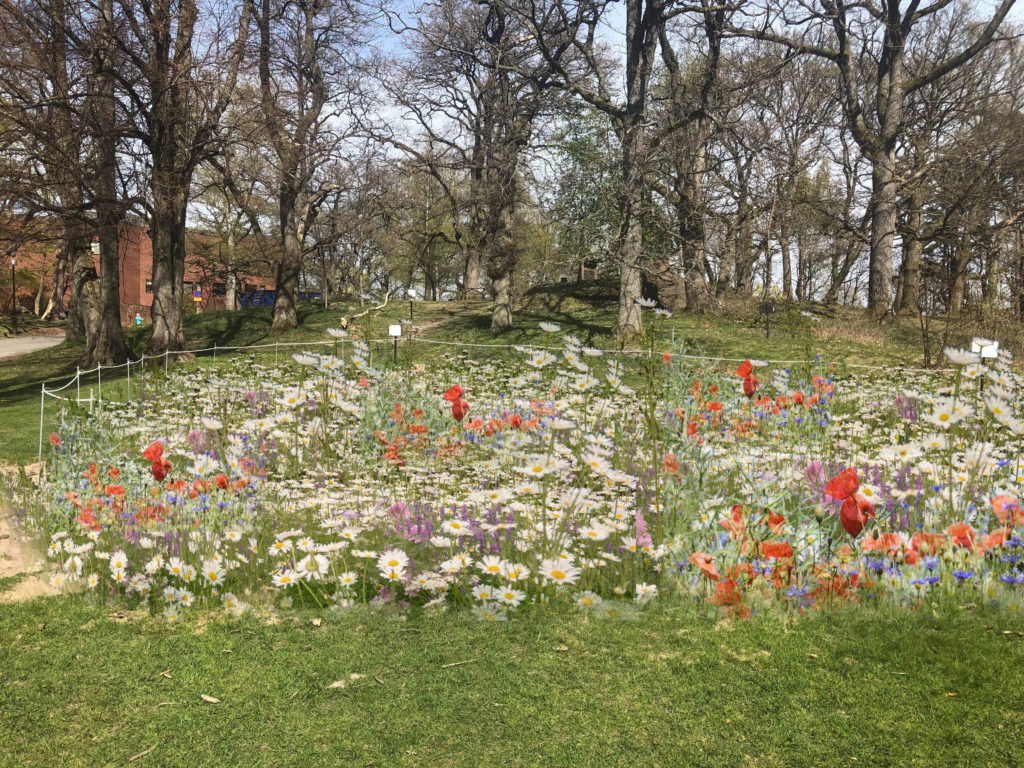

Anniversary publication
A great deal has happened during the museum’s 100 years in Slottsskogen city park. The museum itself has been reorganised and rebuilt, exhibitions have come and gone, and scientific research has made huge advances, often with the help of our collections. The museum has been established as a leading player within research, education and further education.
Anniversary exhibition: Nature through a lens – birds, fossils and photographs
As part of the anniversary celebrations, the museum wants to showcase the significance that science and nature have had – and continue to have – for our contemporary society. We are creating an anniversary exhibition in partnership with the Hasselblad Foundation, with programme activities including talks and workshops.
The exhibition will be shaped by a combination of natural artefacts from the museum’s scientific collections, together with photographs and stories that reflect the museum’s history and highlight how the discovery and exploration of nature has brought new knowledge about biodiversity.
The idea is that more people should be able to access and discover nature. When collecting materials for the exhibition, we want to encourage all age groups to explore and photograph their local nature. We will use photography as a method for heading into nature, and for learning and discovering new things.
Gothenburg Museum of Art
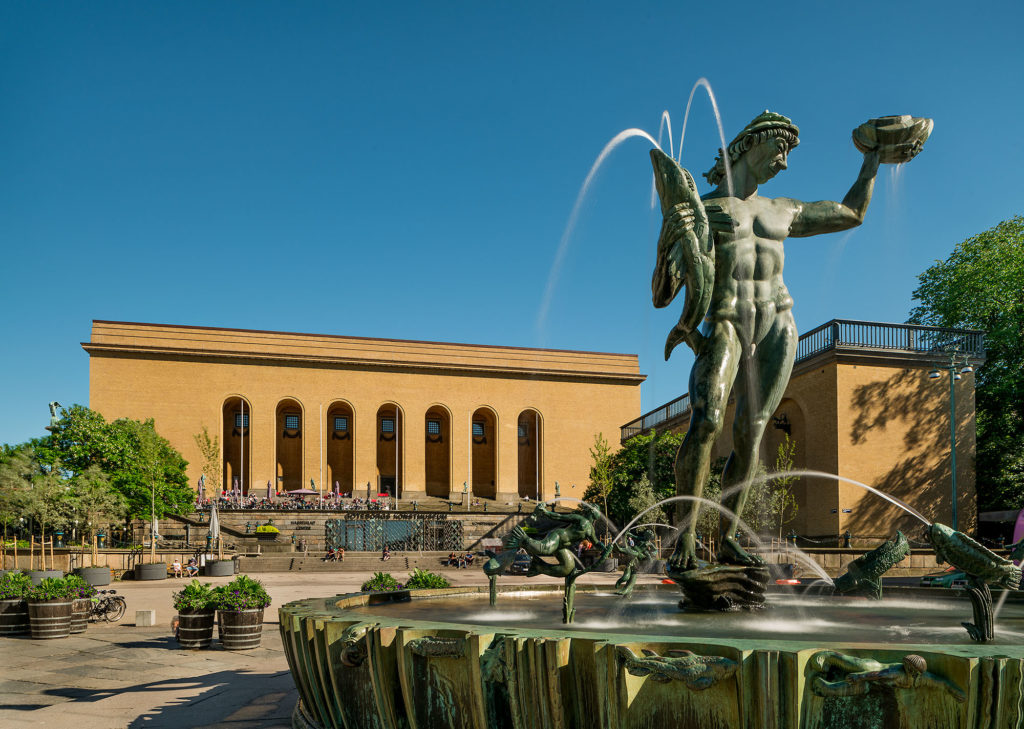

The art museum was designed by Arvid Bjerke and Sigfrid Ericson, and was built for the 1923 anniversary exhibition when Gothenburg celebrated its 300th birthday. The museum building opened two years later, once the interiors had been completed and the collection had been hung in place.
Since it was first opened in 1925, the museum has been expanded twice. A wing housing an exhibition hall on the east side of the old building and three floors for the modern collection at the rear were completed in 1968. In January 1996, the museum gained a new entrance hall and an extension housing the Hasselblad Centre, the museum shop and a restaurant.
Gothenburg Colourists exhibition in 2023
To mark the anniversary year in 2023, a Gothenburg Colourists exhibition and related activities have been planned.
Find out more about Gothenburg Museum of Art at goteborgskonstmuseum.se.
The main boulevard Avenyn
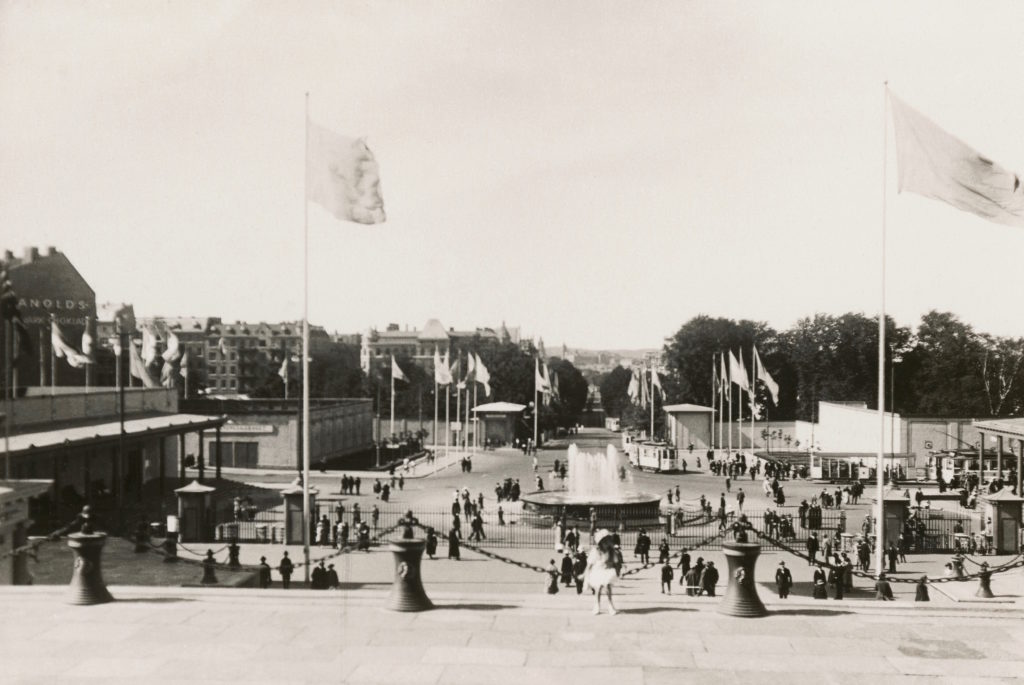

Gothenburg’s main boulevard Avenyn is actually called Kungsportsavenyn or, to be slightly pedantic, Kungsportsavenyen.
The street is 860 metres long, and was built in the late 1800s. Today, it stretches from Kungsbron to Götaplatsen in the city centre. It was not until the anniversary exhibition in 1923 that the street was extended to Götaplatsen and achieved its final length. Avenyn as a whole street will therefore turn 100 in 2023.
The renovation of Avenyn
Avenyn has not been renovated for 50 years, and it has now been decided that the boulevard itself and Götaplatsen should be restored to their former glory, thereby reinforcing the area’s identity. The renovation project also aims to enhance the street’s position and implement improvements for the winter.
The first phase is expected to begin in mid-2024. The renovation of Avenyn and Götaplatsen is expected to be complete by summer 2026.
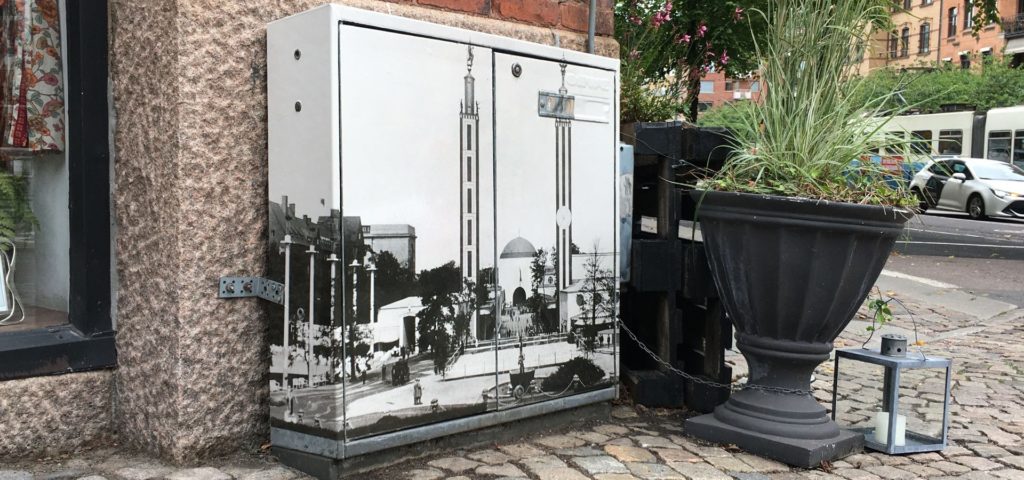

Historical photographs of Södra Vägen
Twelve electrical cabinets from Berzeliigatan to Korsvägen have been adorned with images from the past in a collaborative project between the Avenyföreningen association, Göteborg Energi and BRF Berzelius.
The images have been donated by Andreas Holmström, who inherited a photographic collection. Most of the photographs on display on Södra Vägen were taken by his relative Axel Wilhelm Olsson. Andreas’s great-grandmother (and Axel’s daughter) Magnhild also took some of the photographs.
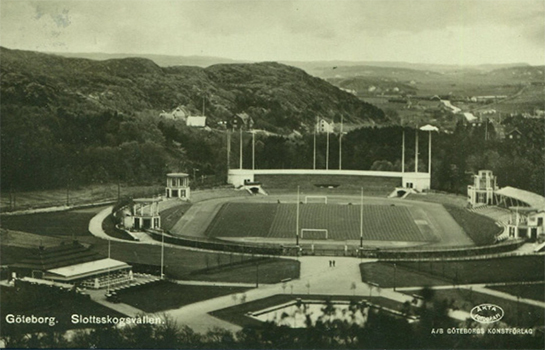

Slottskogsvallen
The Slottsskogsvallen athletics stadium and its entrance park were built for Gothenburg’s great anniversary exhibition in 1923 to mark the city’s tercentenary. Due to the anniversary celebrations being delayed, the stadium was completed in May 1923. In July that same year, the international Swedish games took place at Slottsskogsvallen.
The stadium was designed in the light and elegant 20th century classicist style, as were the other buildings constructed for the exhibition. It was designed by architect and professor at the Royal Institute of Technology Lars Israel Wahlman.
Due to its proximity to Slottsskogen city park, the stadium was one of the first sports facilities in Sweden to be integrated into a park environment. The second International Women’s Games were held at Slottsskogsvallen in 1926, and in 1942 the Swedish runner Gunder Hägg set a world record for running a mile. In the early 2000s, Slottsskogsvallen also came into use as a concert venue about twice a year.
The renovation of Slottsskogsvallen
In honour of Gothenburg’s 400th birthday in 2021, Slottsskogsvallen was renovated by the Sports and Associations Administration. This included recreating the stadium’s original colour scheme of grey-beige and cobalt blue.
New entrance park
Slottsskogsvallen’s new entrance park opened in 2021. There is now a stage for yoga and dance, swings, table tennis tables and scooter riding areas. The park also has simple running tracks, and the existing boules courts and pond have been renovated.
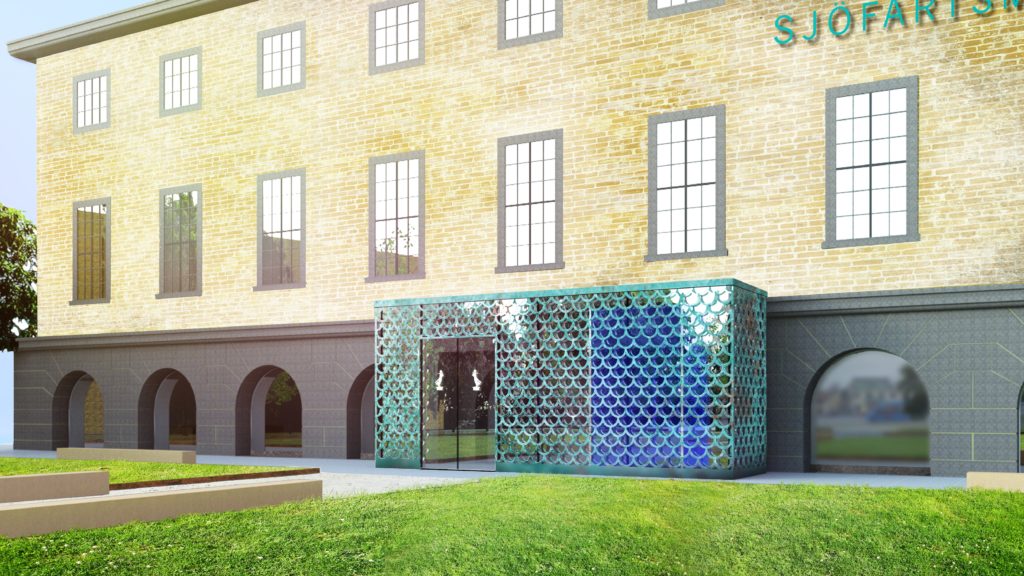

The Maritime Museum and Aquarium
The Maritime Museum itself is not celebrating its centenary yet, but the aquarium that was established for the 1923 anniversary exhibition is.
The Maritime Museum will reopen on December 10, 2022 following extensive redevelopment work that began in 2018.
The aquarium will mark its 100th birthday by reopening in 2023 – twice the size, and with ten times as much water compared to before!
Find out more about the museum at sjofartsmuseetakvariet.se.
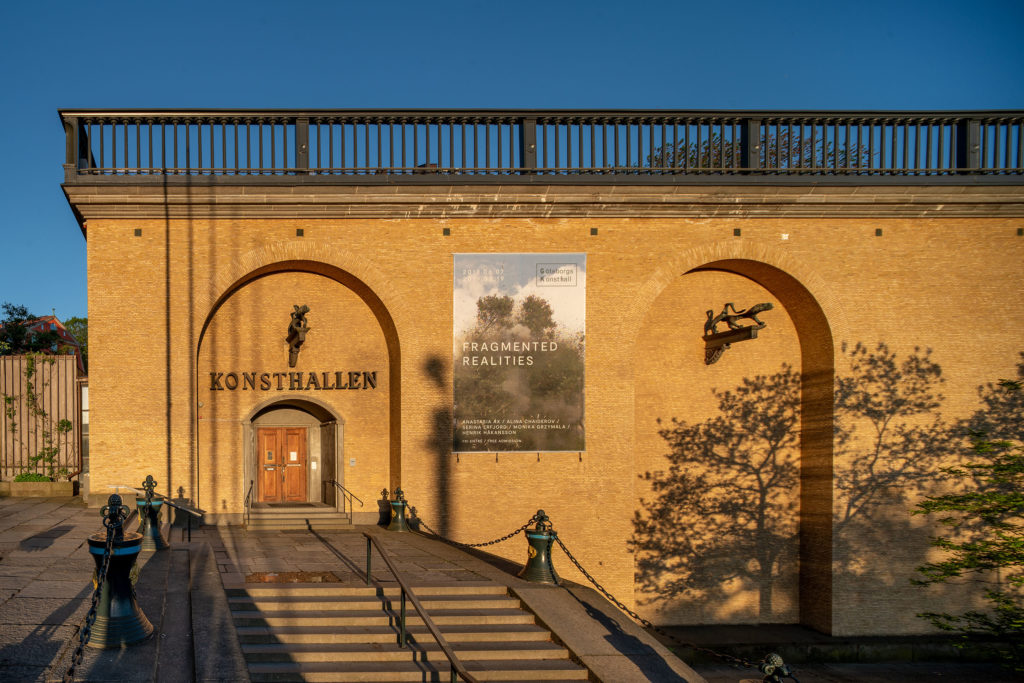

Göteborgs Konsthall – Center for contemporary art in Gothenburg
In 1923, a major anniversary exhibition was staged in Gothenburg to mark the city’s 300th anniversary two years earlier. Several new attractions were built as part of the exhibition, including Göteborgs Konsthall, Gothenburg Museum of Art, Liseberg amusement park and Gothenburg Botanical Garden. At this time, there were also several associated buildings behind the current Göteborgs Konsthall gallery, but these are no longer standing.
As part of the anniversary exhibition, an exhibition of contemporary Nordic art was displayed at the gallery and the art museum. The Norwegian part of the exhibition was shown in what is now Göteborgs Konsthall, and included works by Edvard Munch.
The gallery was designed by the architects Sigfrid Ericson and Arvid Bjerke, who also designed the art museum. The yellow brickwork on the façades of the gallery was supplied by Lomma Brick Factory. On the side facing Götaplatsen, there are three arched niches with sculptures by the artist Palle Pernevi.
In 2017, Göteborgs Konsthall was designated a historic building by the county administrative board, which wrote: “The building is very typical of the time with its classicist features, and has high architectural and artistic value both internally and externally.”
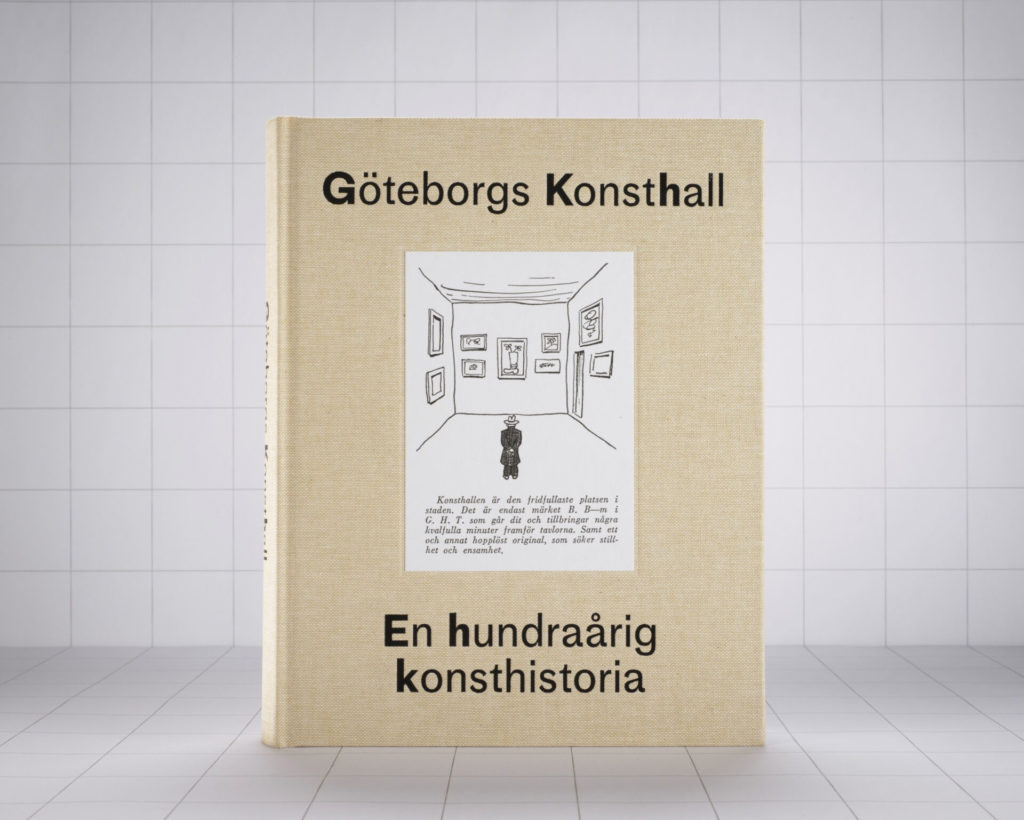

New book: ‘Göteborgs Konsthall – A Hundred-Year History of Art’
Discover the history of Göteborgs Konsthall, a centre for contemporary art in Gothenburg. This new book begins in 19th century Europe when public art exhibitions were first held, describes the city’s anniversary exhibition in 1923 when the gallery opened, and brings us right up to date with 2020 and the pandemic. The book has been written by Andréas Hagström together with several guest authors.
Anniversary activities in 2023
In June 2023, the gallery will mark its 100th anniversary with celebrations and activities.
School of Business, Economics and Law
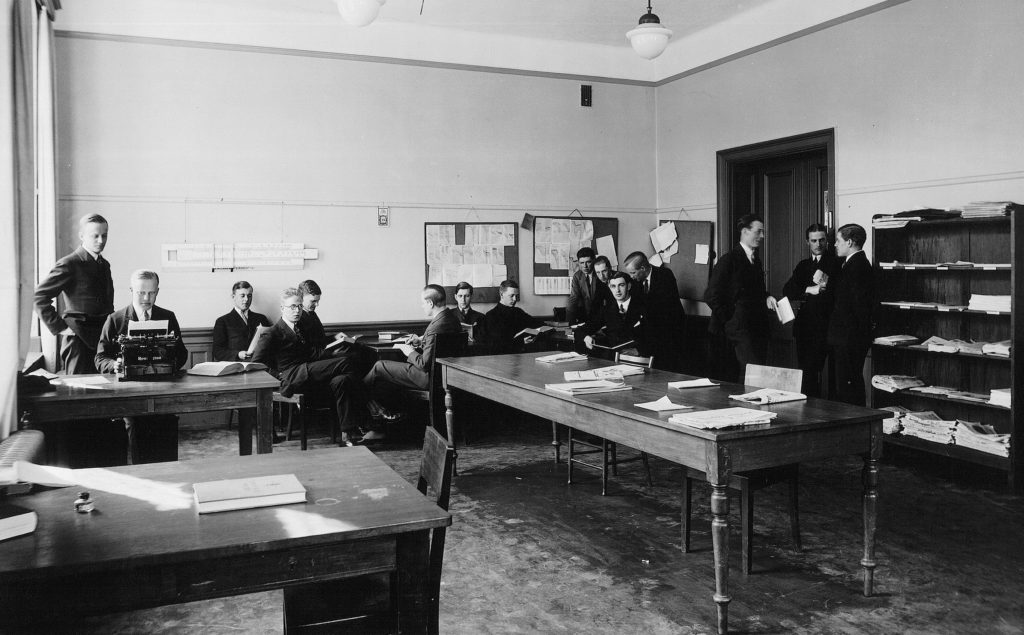

Plans to establish a business school in Gothenburg were first drawn up towards the end of the 19th century, in order to provide future generations of merchants in the trading city with the scientific – and practical – education they needed.
However, the time was not yet right, and it was not until 1923 that the School of Business, Economics and Law opened its doors. The first intake consisted of nine students who were taught economics, business technology (or what we would now call business administration), economic geography and legal science, as well as English, German, French and Russian. A great deal has happened during the past hundred years, but some of the School’s original characteristics can still be seen to this day, such as close cooperation with industry and society, global perspectives and prestigious education.
The School has had several different addresses over the years. Having been temporarily housed at Gothenburg University College, it moved to Gamla Handels at Läroverksgatan 1 in 1925, now known as Gustaviskolan. However, the School quickly outgrew these premises and plans for a new, separate building began to take shape. An architectural competition was announced, and Carl Nyrén was commissioned to design the building at Vasagatan 3, opened by Prince Bertil in October 1952.
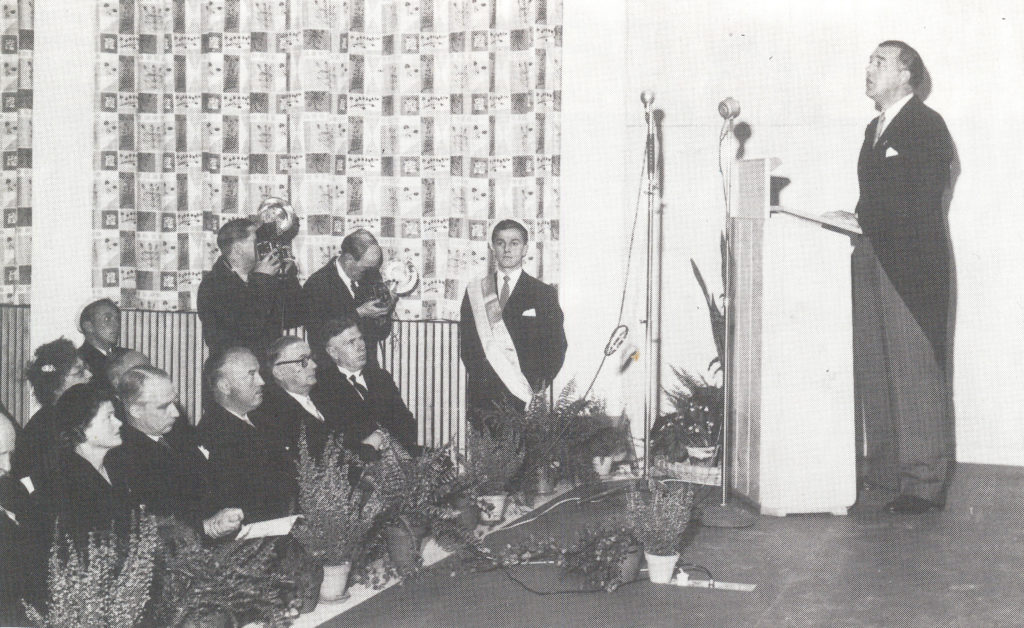

With time these premises also became too small, and in September 1995 the School moved into a new home at Vasagatan 1. The new building has been recognised for its architectural merit, and was awarded the Kasper Salin Prize in 1995.
The School once again found itself in need of larger, more flexible premises, and a new architectural competition was announced in 2014. The new building will have space for expanding research, new teaching and rewarding meetings, enhancing the School’s ability to contribute towards positive societal development. The School’s entire operations will also be able to come together under one roof.
The building will include an entrance to the new Haga Station, making the School an even clearer part of the city with better commuting opportunities for students and employees alike. The building is expected to be complete in 2025, and is being built by Serneke on behalf of Akademiska Hus.
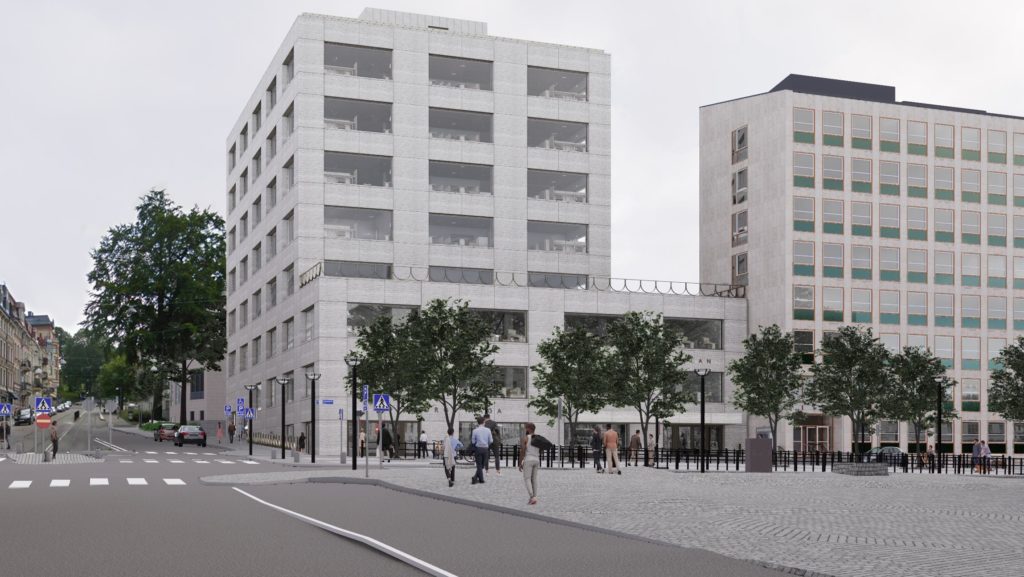

Anniversary activities in 2023
The centenary of the School of Business, Economics and Law will be celebrated throughout 2023. The anniversary year brings many opportunities for the public to take part in socially relevant research and fascinating discussions with invited guests. A long-awaited bachelor’s programme in economics taught entirely in English, and open to both Swedish and international students, will begin in autumn 2023.
Find out more about the School of Business, Economics and Law at gu.se.




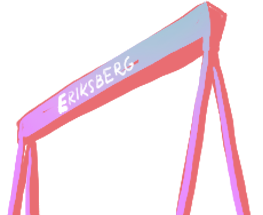



Stäng ×
Tack för ett fantastiskt jubileumsfirande!
Arbetet med Göteborgs 400-årsjubileum närmar sig sitt slut och den här webbplatsen kommer så småningom att stängas. Ett tag till kan du gå in och läsa om allt som hänt under stadens utvecklingsresa. Men observera att inga uppdateringar görs mer.
För mer information om destinationens besöksmål och utbud, besök goteborg.com


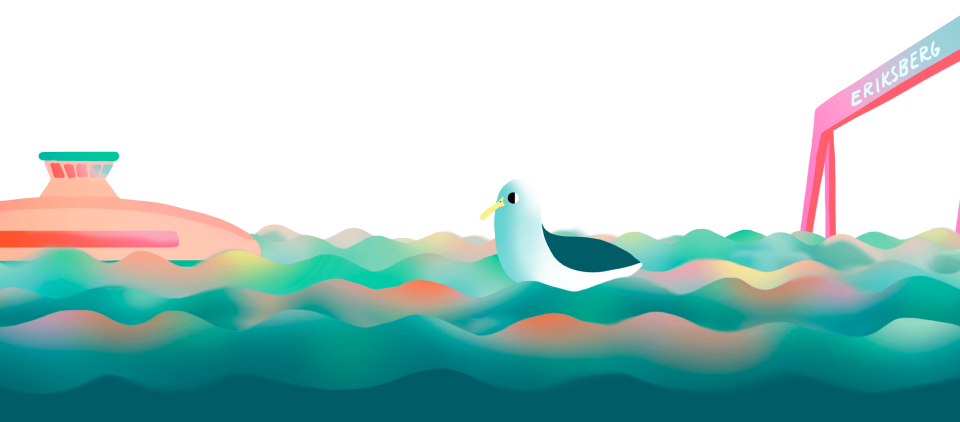



Gothenburg's 400th Anniversary
Gothenburg has turned 400 and the city wants to celebrate this by making Gothenburg an even better destination to visit, live and be in. In the summer of 2023, we invite locals and visitors from all over the world to celebrate together.
CONTACT US
Box 29, 401 20 Gothenburg Johan Willins gata 3 416 64, Gothenburg 2023@goteborg.com
MORE CONTACT PERSONS

